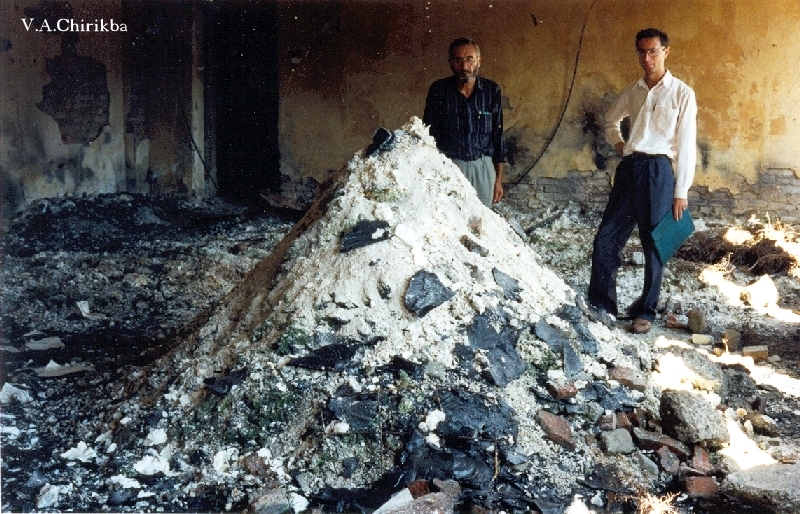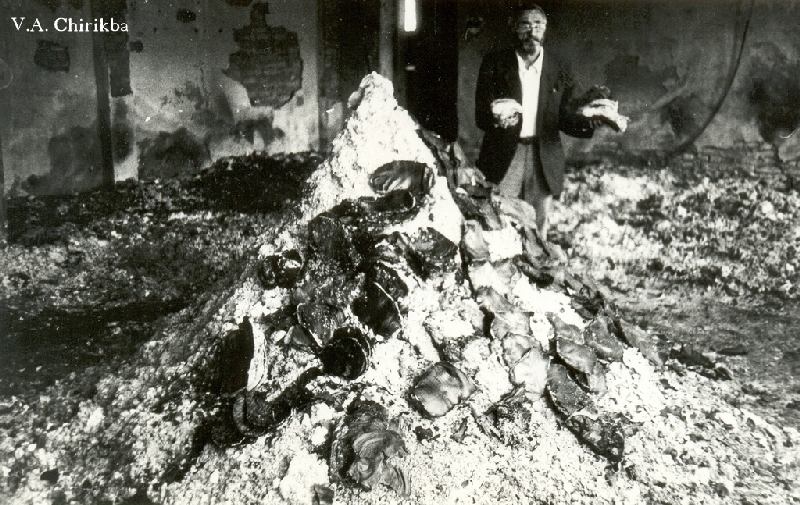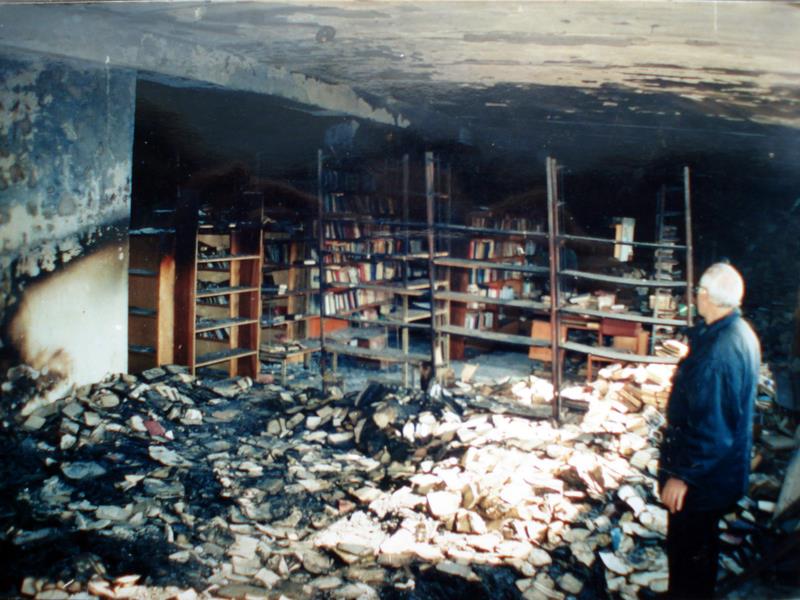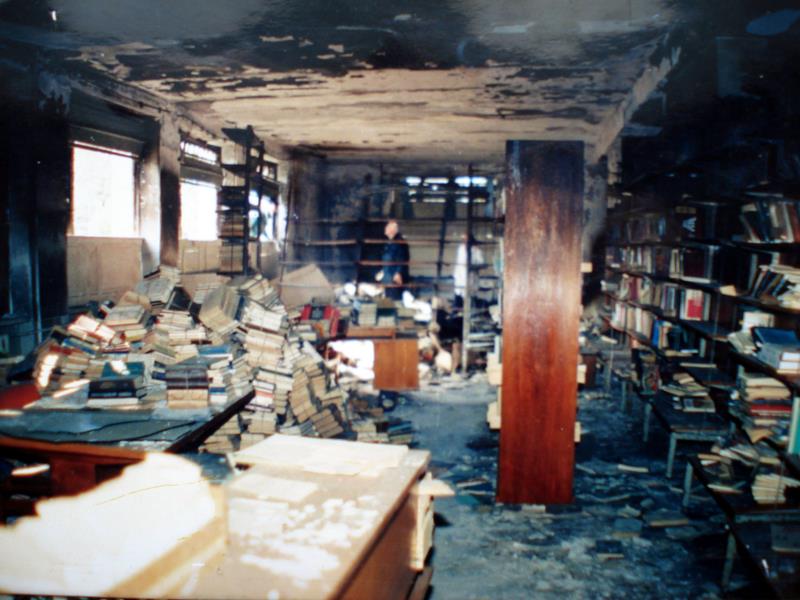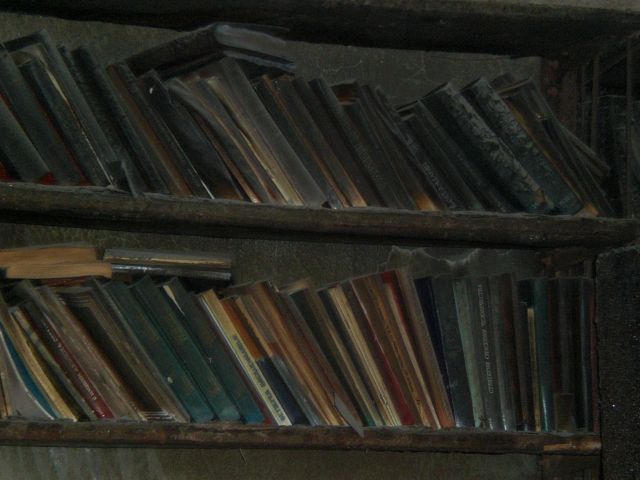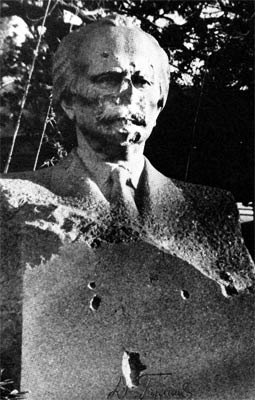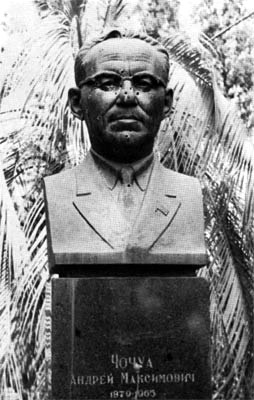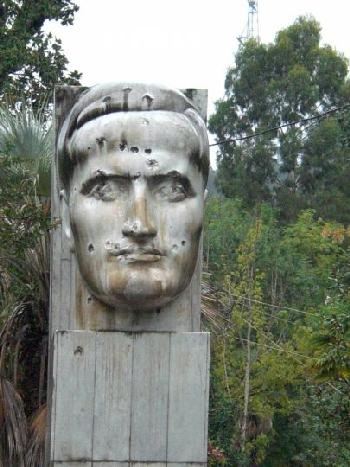The history of the region became ashes: An excerpt from Neal Ascherson’s ‘Black Sea’

National Library of the Republic of Abkhazia
'Black Sea' by Neal Ascherson - pp.233 - 234
Abkhazia also lost its history. More accurately, it lost the material evidence of its own past, the relics and documents which any newly independent nation needs to re-invent and reappraise its own identity. This was not an accidental consequence of the fighting for Sukhum. It was, in part, a deliberate act of destruction.
The National Museum was not burned, but it was looted and devastated. In its dim halls, stuffed bears and spoonbills lean over torn cartons of Greek pottery shards. The huge marble relief of a woman and her children, found on the sea-bed off the site of Dioscurias, was spared because of the staff (several of whom were Georgians) hid it behind boards. But the Georgian soldiers took the coin collections and even replicas of gold and silver vessels whose original were already in the museum at Tbilisi. The cases containing Abkhaz finery, inlaid muskets and jewelled daggers and decorated wedding dresses, were broken and emptied. Soldiers do this everywhere in occupied cities – it was no worse than the plundering of Kerch museum in the Crimean War. But the fate of the State Archives was different.
The shell of the building stands down by the sea. Its roof has fallen in, and the interior is a heap of calcined rubble. One day in the winter of 1992, a white Lada without number-plates, containing four men from the Georgian National Guard, drew up outside. The guardsmen shot the doors open and then flung incendiary grenades into the hall and stairwell. A vagrant bot, one of many children who by then were living rough on the streets, was rounded up and made to help spread the flames, while a group of Sukhum citizens tried vainly to break through the cordon and enter the building to rescue burning books and papers. In those archives was most of the scanty, precious written evidence of Abkhazia’s past, as well as the recent records of government and administration. The Ministry of Education, for example, lost all its files on school pupils. The archives also contained the entire documentation of Greek community, including a library, a collection of historical research material from all the Greek villages of Abkhazia and complete files of the Greek-language newspapers going back to the first years after the Revolution. As a report compiled later in Athens remarked: ’the history of the region became ashes’.
***
- A history erased - Abkhazia's archive: fire of war, ashes of history - Video
- Abkhazia's archive: fire of war, ashes of history, by Thomas de Waal - Open Democracy
- Abkhazia: Cultural Tragedy Revisited, by Thomas de Waal - IWPR
- Vandals of the end of the XXth century, by Ermolay K. Adzhindzhal
- Interview with Boris Cholaria, Director of the National Library of the Republic of Abkhazia
